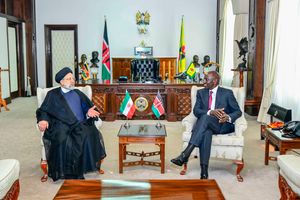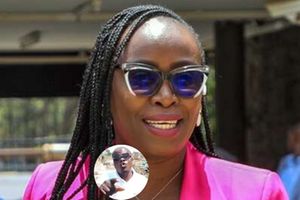Stop evil troika of FGM, teenage pregnancy and child marriage

FGM is a deeply rooted practice in Kenya with a high prevalence among certain communities, with Migori County having the highest rates
FGM is a word that we have come across a couple of times. And sometimes we might just read or hear something about it but do not actually internalise what this is.
Unfortunately, it's fate that will befall a young girl who will be forcibly taken by the brother to perform this horrifying act. It is a broken trust for a five-year-old who will be taken by her loving aunt and laid down to be hurt in the name of rite of passage. It hurts not only physically but mentally, emotionally and psychologically. It also drives child marriage and teenage pregnancy as the ‘circumcised’ girls are presumed to have become adults.
FGM (short for female genital mutilation) has been practised for generations with no indication of its benefit. The fact that its existence is whispered among peers and nobody says what exactly one is going to go through makes it more than suspicious. FGM is a deeply rooted practice in Kenya with a high prevalence among certain communities, with Migori County having the highest rates.
FGM is influenced by various cultural and social factors. They include deep-rooted cultural beliefs and traditions that view the vice as an essential part of womanhood and marriageability. Societal pressure and the fear of stigma also contribute to its perpetuation. Lack of education and awareness about the health consequences of FGM also plays a role. Many communities may not fully understand the harmful physical and psychological effects it can have on girls and women.
Effective strategy
Empowering women and girls, and even the male gender, to resist FGM is an effective strategy for ending the vice. By providing education and raising awareness of its consequences, women and girls, now informed, can actively resist the pressure to undergo the procedure.
Empowerment programmes such as economic opportunities and vocational training can also enhance self-esteem and confidence among women and girls, enabling them to challenge traditional gender roles and pursue their rights.
That the women who have been through this harmful practice are the ones who usually force younger women into it is saddening; the experience is simply traumatising. When women who have been through this ritual say 'No', condemn it and say they do not see its benefit, that could go a long way in ending it.
Engaging opinion leaders in the community through grassroot dialogue will make them understand that FGM is harmful and unnecessary. That can make the entire village turn around and, therefore, eradicate the evil troika of FGM, child marriage and teenage pregnancy.
Miss Nthiana is a sexual and reproductive health advocate at NAYA Kenya. [email protected].





